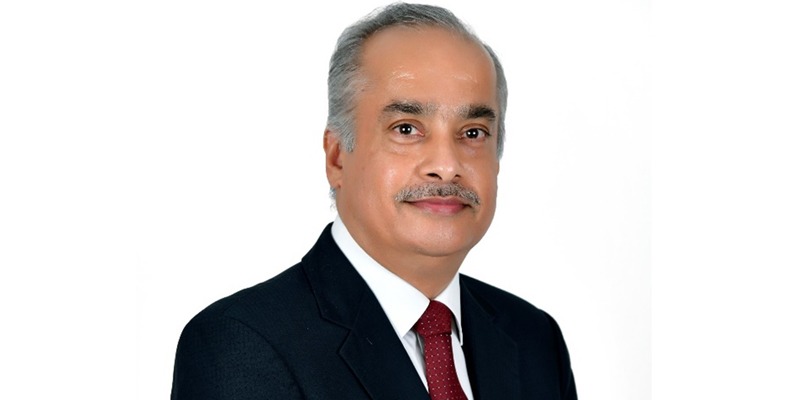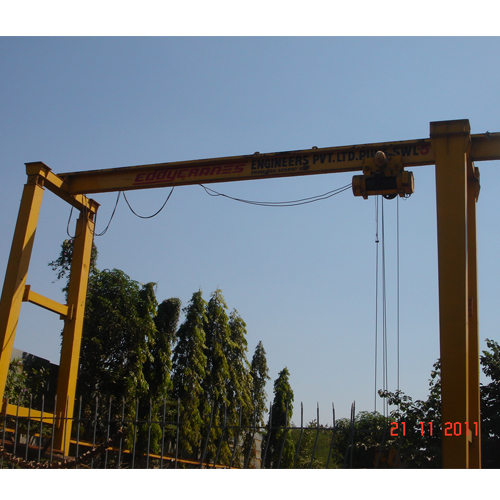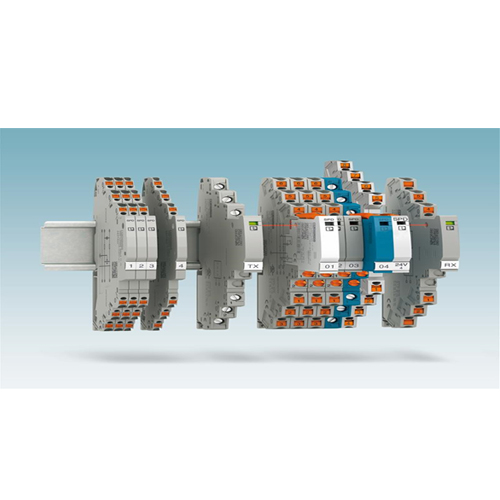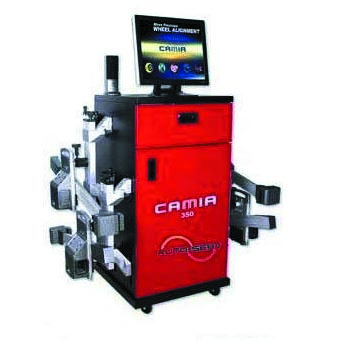Schedule a Call Back
Indo-German partnership goes beyond business
 Articles
Articles- Apr 01,19

Trade partnership between India and Germany is over 500 years old. More than 300 hundred years ago, Germany was the first country to undertake research on Indian languages such as Tamil, Telugu, Malayalam, etc. Today, Germany is India’s largest trading partner in the European Union and ranks 4th in the list of India’s top ten trading partners worldwide. In future, two countries are expected to work closely in areas of trade, education, culture, sustainable development, etc for mutually beneficial partnership, says Rakesh Rao.
While relation between India and Germany is many centuries old, economic relationship started 150 years ago, when Siemens built the first telegraphic line in India from Kolkata to London. There are many other German companies like Bayer, Merck, etc. who have been present in India for more than 100 years. In fact, Germany can also be considered as the pioneer of Indian aviation industry since the first Indian fighter plane Marut was designed by Kurt Tank, a German aviation expert who was working with Hindustan Aeronautics Limited (HAL). Besides, Germany extended its support for starting the modern Indian automotive industry, when Mercedes-Benz granted a license for automobile production to the Tata Group, who launched the first truck in India in 1954.
“After India’s independence, Germany was one of the countries that extended complete support to India’s industrialisation programme and helped it become a leader in science and technology. In 1955, Germany helped in building the country’s first integrated steel plant in Rourkela (the largest in the world at that time), which is considered to be the mother of the Indian steel industry. Germany also played an instrumental role in establishing IIT Madras, the leading technical institute in the country. The relationship between both the countries has grown stronger over these years,” said Bernhard Steinruecke, Director General, Indo-German Chamber of Commerce (IGCC), in one his earlier interviews in IPF.
Indo-German trade
India and Germany have enjoyed a ‘strategic partnership’ since 2001. The trade (import & export) between the two countries has witnessed a manifold jump since 2000. While the trade volume between the two countries was Euro 4.512 billion in calendar year (CY) 2000, it reached Euro 19.149 billion in 2017 (CY). In 2017 alone, trade volume saw a jump of 9.82 per cent compared to 2016 (Euro 17.436 billion). “More importantly, the partnership between the two countries goes way beyond just the trade. The fourth Inter-Governmental Consultations (IGC), held between India and Germany in Berlin in May 2017, reiterated the importance of the strategic partnership between the two countries and discussed a wide range of topics such as security, free trade, a rule-based international order, etc,” explained Steinruecke.
Germany is one of India's most important trade partners. “India is a preferred market for Germany, with demand for German products and technology growing among Indian industries. India is base to over 1,000 German companies. German technology and Indian skilled manpower makes a perfect combination for business ventures. With more and more German companies investing and setting up base in India, the trade between the two countries increasing year on year,” opined Shivshankar Pikale, Managing Director of KTR Couplings India Pvt Ltd - a wholly owned subsidiary of Germany-based KTR System GmbH. As a leading manufacturer of high-grade power transmission technology, brake systems and cooling systems, and hydraulic components, KTR System is a dependable partner for many companies operating in sectors such as machine tools, power plant, hydraulic machinery, sugar, fertiliser, mining, etc.
Manoj Dunung, Managing Director India of Weidmueller Group, added, “India has a fast growing domestic market and offers high and long term economic growth. Investments in infrastructure, process, energy & transportation are increasing. At the same time, global companies are setting up operations and/or engineering R&D facilities in India. The presence of foreign companies in India will gradually raise quality standards of products and services.”
According to VDMA (The Mechanical Engineering Industry Association of Germany), India ranks 15th globally in the list of top 50 destinations for the German mechanical engineering exports. In 2018, the total import of machinery from Germany reached a volume of Eur 3.40 billion. This was an increase by 9.3 per cent compared with the same period of time in the previous year. On the other hand, in 2017, India imported machinery of the value Eur 18.37 billion globally. Germany is the 2nd most important supplier to India globally, share of around 16.7 per cent, behind China (34.2 per cent) and ahead of Japan (10.3 per cent) and Italy (7.4 per cent).
Among the machinery sectors, major demand of German equipment was for power transmission (10.8 per cent), textile machinery (7.05 per cent), machine tools (6.76 per cent), valves & fittings (5.38 per cent) and construction equipment and building material machinery (5.29 per cent). There are other sectors like air handling technology, fluid power equipment, plastic and rubber machinery and food processing & packaging, which are growing steadily in India.
Going beyond trade
With the introduction of disruptive manufacturing technologies, the need for manpower having new skills is on the rise. While Government of India is putting lot of efforts in skill development area, it is still a long way to go and lot to be done to enhance the skill of the workers to make them ready for Industry 4.0 and high-end automation. Germany is helping India in this effort.
As per IGC agreement in 2017, India and Germany are jointly working in multiple directions of education, technology, security, stability, connectivity, sustainable development, rule-based international order, etc. There are 10 Joint Working Groups that are working on vocational training, automotives, digitalisation, etc.
“For last more than 25 years, IGCC has been conducting vocational training in India in line with Germany’s dual-education system – according to which, the theory part of the training are conducted in Indo-German Training Centres and the practical sessions are held at the facilities of German companies. At present, we have three training centres in Mumbai, Chennai and Bengaluru. Together with German companies, IGCC also provides technical training to help youngsters develop their technical skills,” informed Steinruecke.
Two countries are also collaborating for sustainable development - a buzzword globally. For example, Germany is actively supporting the Clean Ganga mission. To support the Smart Cities programme of the Government of India, Germany has adopted three cities Bhubaneswar, Coimbatore and Cochin.
Steinruecke said, “German companies manufacture quality products using latest, energy-efficient technologies and adhering to highest environment norms. German companies follow the same production standards in India and some companies even use renewables to fulfill their energy needs. For example, firms like Bosch, Siemens, etc., have state-of-the-art production centres in India and are using rooftop solar panels for their energy requirements.”
New opportunities
Sectors such as automotive, services, ITES, chemicals, etc offer high growth potential to German firms. India, with its IT talent, is also helping German firms to meet global needs. For example, leading German engineering companies have huge IT development centers in India for their global IT requirements. Aerospace is another sector of interest for Germany, which is a very strong player in aviation. With Indian government looking at means to reduce dependence on imported fuel, prospects of companies supplying products and services to renewable energy segment is also looking bright.
“Coupling, brake systems and hydraulic components are our major offerings to wind turbine manufacturers. Government initiative for wind energy production target to 60 GW by 2022 from the current 20 GW will definitely boost wind turbine demand in market. We have started producing locally the brake system components for the wind energy segment. We aspire to be a preferred supplier and solution providers for power transmission products and achieve a turnover of Rs 500 million by 2021,” said Pikale, when asked about the demand for the company’s couplings from wind energy sector.
Need for automation is increasing across Indian industries - driven currently by the automotive, energy (which includes power generation, transmission & distribution, renewable energy such as solar and wind) and process industries, including chemicals and fertilisers. The other sectors that also use automation to lower variance are the pharmaceutical, food & beverages, water and wastewater, cement, textile, metals, and the mining industry. Companies from Germany, the first country to coin the term Industry 4.0, expect jump in demand for automation business and are planning expansion.
“Future expansion will be on sales and distribution networks at strategic locations. We have opened a new warehouse facility in Bangalore with area of 4000 sq ft. Next will be value-added solutions with local assembly and local manufacturing in line with the ‘Make in India’ motto,” said Manoj Dunung of Weidmueller - a global leader in electronics and automation products, solutions and services for industrial applications in the power, signal and data sectors.
From building India’s first integrated steel plant to designing its fighter plane Marut, Germany (known globally for its engineering technology) has played a big role in industrialisation and the development of manufacturing sector in India. Besides trade, the relationship between the two countries is expected to grow deeper in areas such as education, culture, international order, sustainable development, etc in the future.
Quote
After India’s independence, Germany was one of the countries that extended complete support to India’s industrialisation programme and helped it become a leader in science and technology. The relationship between both the countries has grown stronger over these years.
Bernhard Steinruecke, DG, Indo-German Chamber of Commerce (IGCC)
India is a preferred market for Germany, with preference for German products and technology growing among Indian industries. India is base to over 1,000 German companies. German technology and Indian skilled manpower makes a perfect combination for business ventures.
Shivshankar Pikale, MD, KTR Couplings India Pvt Ltd
India has a fast growing domestic market and offers high and long term economic growth. Investments in infrastructure, process, energy & transportation are increasing.
Manoj Dunung, MD, Weidmueller India
Related Stories

India takes a leap in energy transition with innovations at Elecrama 2025
With over 1,100 exhibitors and presence of leading international players, Elecrama 2025 provided a vital platform to witness cutting-edge innovations in the energy sector. The event further reinforc..
Read more
Automation offers huge potential for SMEs
Securing supply chains has gained prominence due to Covid 19 pandemic; thus, increasing the need for scalable infrastructure and high-performance communication networks. Digitalization has certainly..
Read more
Make in India initiative seems to be bearing fruit
Rising application of electronics in sectors such as lighting, automotive, communications, etc and favorable government policies are aiding demand for electronic components and products.
Read moreRelated Products

Gantry Goliath Cranes
Eddycranes Engineers (P) Ltd offers a wide range of gantry goliath cranes.

Surge Protection With an Overall Width of 3.5 Mm
Phoenix Contact India Pvt Ltd offers a wide range of surge protection with an overall width of 3.5 MM.

Wheel Aligners, Computerised
Samvit Garage Equipments offers a wide range of wheel aligners, computerised.
















